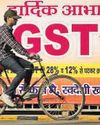Denemek ALTIN - Özgür
A tale of two Indias: Inequality alleviation remains a challenge
Mint Mumbai
|January 14, 2025
Seven decades of widening and shrinking disparities offer clues to the policies we must pursue for a more equitable future

Over the past seven decades, India's income inequality has transformed significantly, with stark divergences between rural and urban areas. These changes highlight contrasting socio-economic trajectories and reflect the successes and shortcomings of policy efforts to address disparities.
Drawing on scientific household income surveys (1953-2023), a recent PRICE working paper provides valuable insights into India's uneven growth story and the challenges of inclusive development.
The rural landscape: In rural India, income inequality has fluctuated due to agricultural developments, economic reforms, and targeted interventions. The Gini ratio—a measure of inequality—offers insights into these changes. Between 1955 and 1975, the rural income Gini ratio rose modestly from 0.341 to 0.388 (indicating more inequality), driven by unequal land ownership and the limited reach of government programmes.
The Green Revolution modernized agriculture, but disproportionately benefited wealthier farmers with access to irrigation and advanced inputs, leaving marginalized groups behind.
From 1975 to 1995, the income Gini ratio declined slightly to 0.376, reflecting poverty alleviation schemes like the Integrated Rural Development Programme (IRDP) and land reforms. Policies such as the Minimum Support Price (MSP) mechanism offered small farmers stability. Despite uneven implementation, these measures curbed inequality modestly.
Economic liberalization from 1995 to 2005 reversed this trend, with the Gini ratio climbing sharply to 0.438. Reforms opened new markets but primarily benefited wealthier households that were able to access credit, technology, and infrastructure. Small and marginal farmers faced declining subsidies and limited institutional support, widening the gap.
Bu hikaye Mint Mumbai dergisinin January 14, 2025 baskısından alınmıştır.
Binlerce özenle seçilmiş premium hikayeye ve 9.000'den fazla dergi ve gazeteye erişmek için Magzter GOLD'a abone olun.
Zaten abone misiniz? Oturum aç
Mint Mumbai'den DAHA FAZLA HİKAYE

Mint Mumbai
TCS, Wipro US patent suits worsen IT's woes
Two of the country’s largest information technology (IT) services companies—Tata Consultancy Services Ltd and Wipro Ltd—faced fresh patent violations in the last 45 days, signalling challenges to their expansion of service offerings.
2 mins
November 25, 2025

Mint Mumbai
AI bond flood adds to market pressure
Wall Street is straining to absorb a flood of new bonds from tech companies funding their artificial intelligence investments, adding to the recent pressure in markets.
4 mins
November 25, 2025

Mint Mumbai
Auto parts firms spot hybrid gold
Auto component makers are licking their lips at the ascent of hybrids, spying a new growth engine at a time when electric vehicle (EV) sales have not measured up.
2 mins
November 25, 2025

Mint Mumbai
Diwali is past, but shopping season is roaring ahead
India's consumption engine appears to be humming well past the Diwali rush, with digital payments showing none of the usual post-festival fatigue.
3 mins
November 25, 2025

Mint Mumbai
HOW TO SPOT A WINNING STARTUP IPO
As a flood of new listings burns small investors, we investigate the overlooked metrics
9 mins
November 25, 2025
Mint Mumbai
WHY INDIA HAS FAILED TO CURB AIR POLLUTION
Despite massive funding, India has failed to make meaningful progress in combating air pollution. Beijing's dramatic turnaround over the past decade offers crucial lessons.
4 mins
November 25, 2025
Mint Mumbai
Micro biz has a harder time securing loan to start up
Bank lending to first-time micro-entrepreneurs has plummeted, signalling tighter credit conditions for small businesses already struggling with cash flow pressures and trade turmoil. In the first six months of the fiscal year, a key central scheme to support such lending managed to sanction just about 12% of what was sanctioned in the entire previous fiscal year, official data showed.
2 mins
November 25, 2025

Mint Mumbai
Inverted duty fix is next on GST agenda
GST Council to expand work on fixing anomaly at next meet
2 mins
November 25, 2025

Mint Mumbai
Why was a fresh approach to QCOs needed?
The government is now withdrawing the quality control orders (QCOs) issued earlier across sectors. Mint examines the original intent, the reasons for the policy reversal, and the expected national benefits from this move.
2 mins
November 25, 2025
Mint Mumbai
Climate: Hope lives
Climate change could be described as a \"tragedy of the commons.\" That is, one where a shared resource, such as the planet's atmosphere, gets degraded because everyone has an incentive to put immediate self-interest above what's good for all.
1 min
November 25, 2025
Listen
Translate
Change font size

